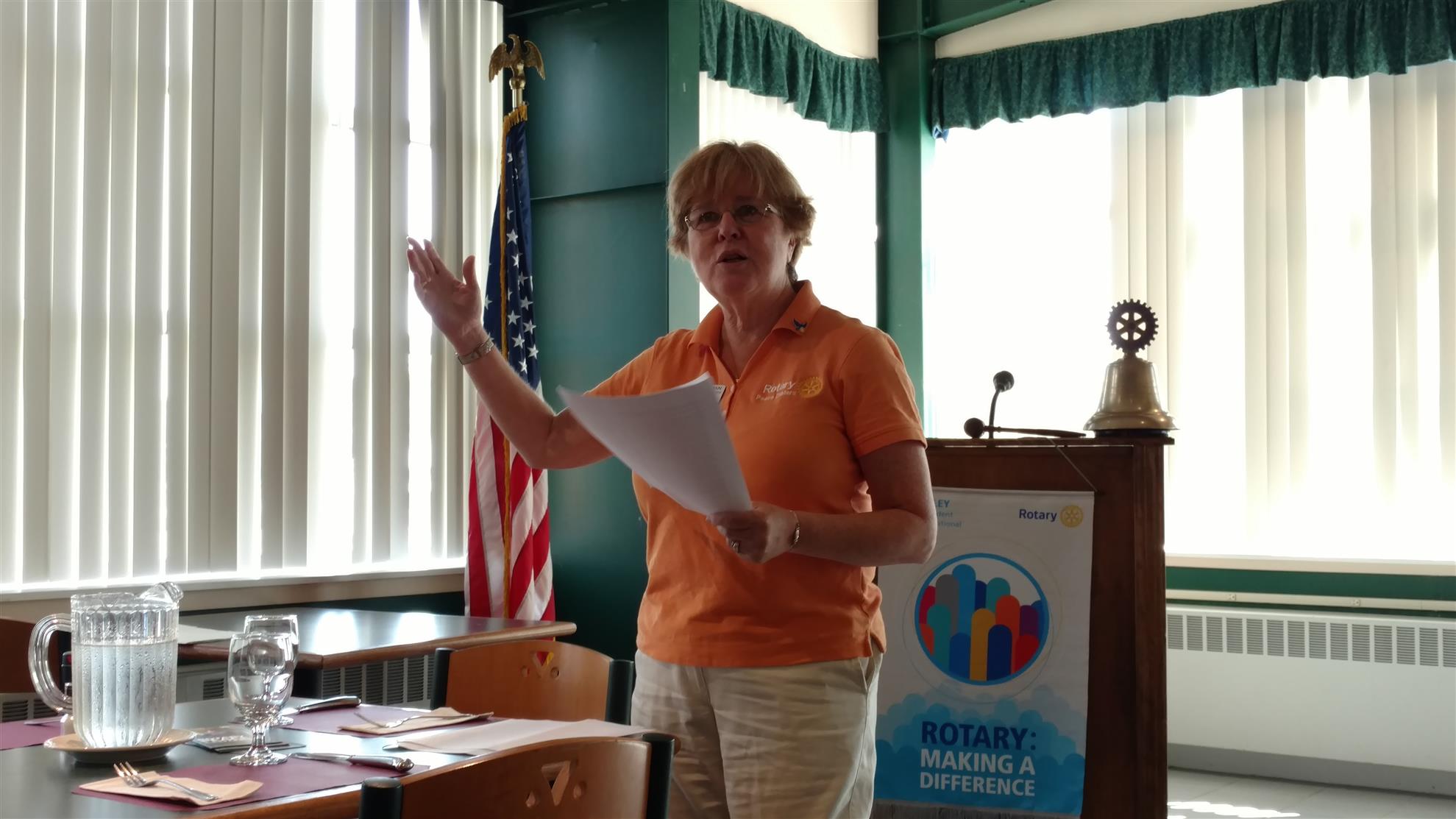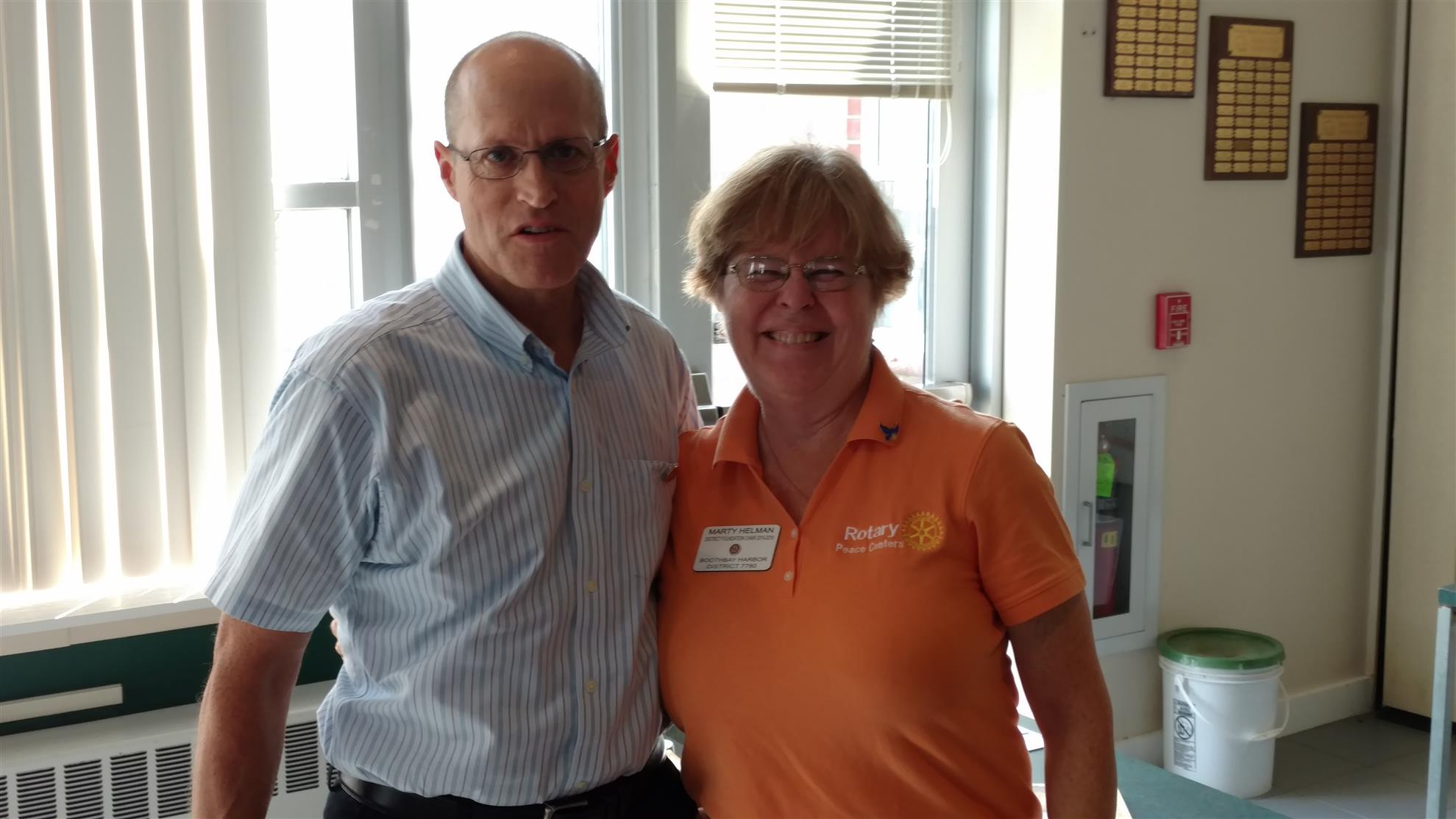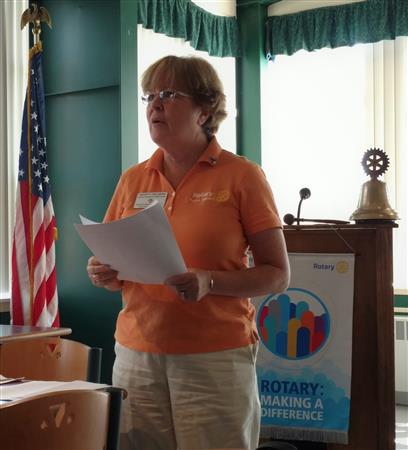Past District Governor and current District Foundation Chair Marty Helman joined us on September 26 to share Rotary’s long history of promoting and building peace. She began with this quote from Lao Tzu:
If there is to be peace in the world,
There must be peace in the nations.
If there is to be peace in the nations,
There must be peace in the cities.
If there is to be peace in the cities,
There must be peace between neighbors.
If there is to be peace between neighbors,
There must be peace in the home.
If there is to be peace in the home,
There must be peace in the heart.
The Rotary Foundation was created at the Rotary International Convention of 1917, in the midst of a war so horrific that a new category was invented to name it - the World War. During this same convention, Rotarians also adopted a Resolution of Peace as an organizational focus. The resolution called for " a plan of education as to the causes of war".
In 1921 at the Edinburgh Convention, Rotarians unanimously agreed to incorporate peacemaking into Rotary's constitution and by-laws with these words, "The advancement of international understanding, goodwill, and peace through a world of fellowship of business and professional persons united in the ideal of service." Around this same time, Rotary began to actively promote and fund study abroad programs. This concept continues today through Rotary Youth Exchange.
In 1940, the Rotary Convention adopted a Resolution that called for "freedom, justice, truth, sanctity of the pledged word, and respect for human rights."
In 1945, Rotarians served as delegates, advisers and consultants at the UN Charter Conference and the 1940 Resolution was used as a draft for what became the UN's Universal Declaration of Human Rights. This history – combined with Rotary’s partnership with UNICEF in PolioPlus – explains why Rotary continues to be an official observer at the UN General Assembly.

PolioPlus is Rotary’s greatest peace-making effort. Unfortunately, extremists have targeted polio workers for assassination and have created the urban legend that the vaccinations are a western plot to cause sterility. But most people – no matter their political affiliation – don’t want little children to be crippled. There have been many instances over the past 30 years where combatants have called for “days of tranquility” – periods of cease fire that have allowed public health worker to move freely.
For two decades, Rotary has sponsored the Rotary Peace Fellows program at six Peace schools around the world (based at existing academic institutions). Every year, 100 scholars are selected from an international pool of applicants. Half to earn their master's in peace and conflict resolution and half to attend a certificate program. All are fully funded scholarships. The goal is to ensure that the Peace Fellows have the tools they need to solve tomorrow's problems and strive for peace.
Of course, at the club level, it’s the humanitarian work we do all the time in our communities and internationally with club cash and through the Foundation is the biggest driver of peace. As with the PolioPlus effort, we don’t often call it peace building – we think of it as literacy or disease prevention or economic development. But as we have seen from Maslow’s Pyramid of Rotary’s areas of focus, these are the building blocks that must be in place that all lead to peace.

WG Foundation Chair Steve Rand with
PDG and District Foundation Chair Marty Helman

